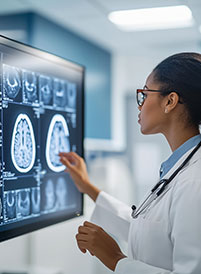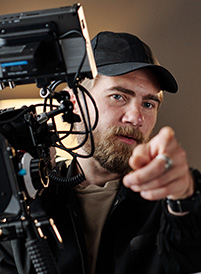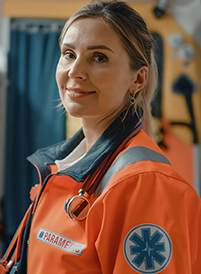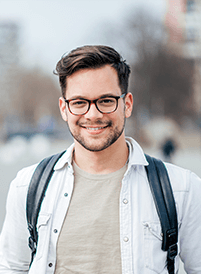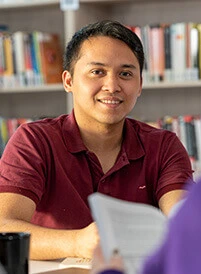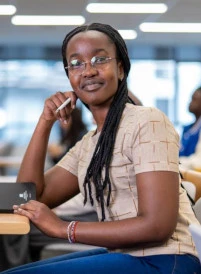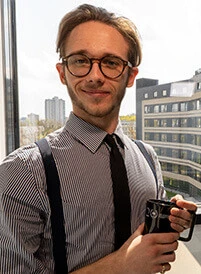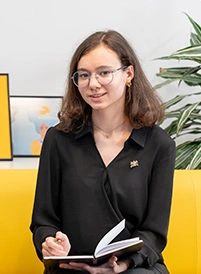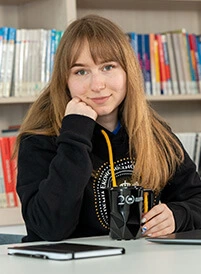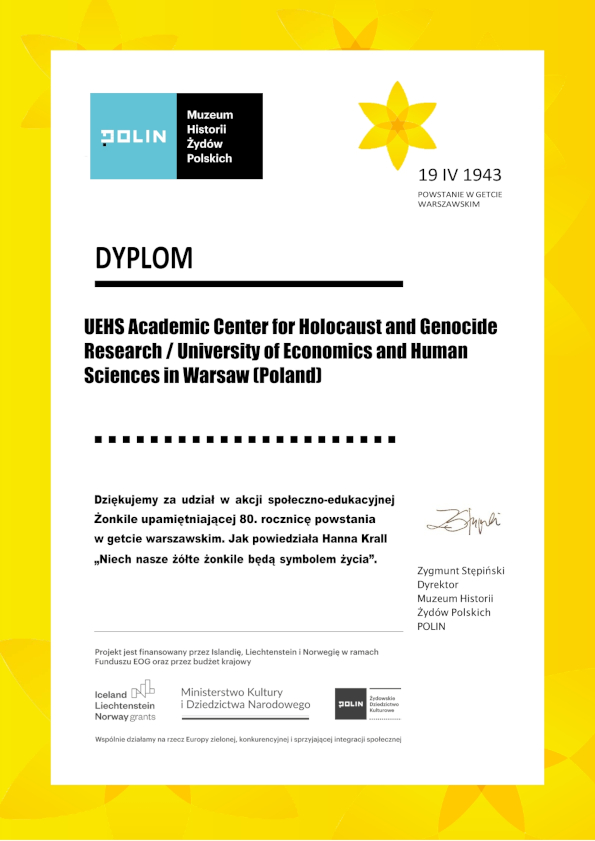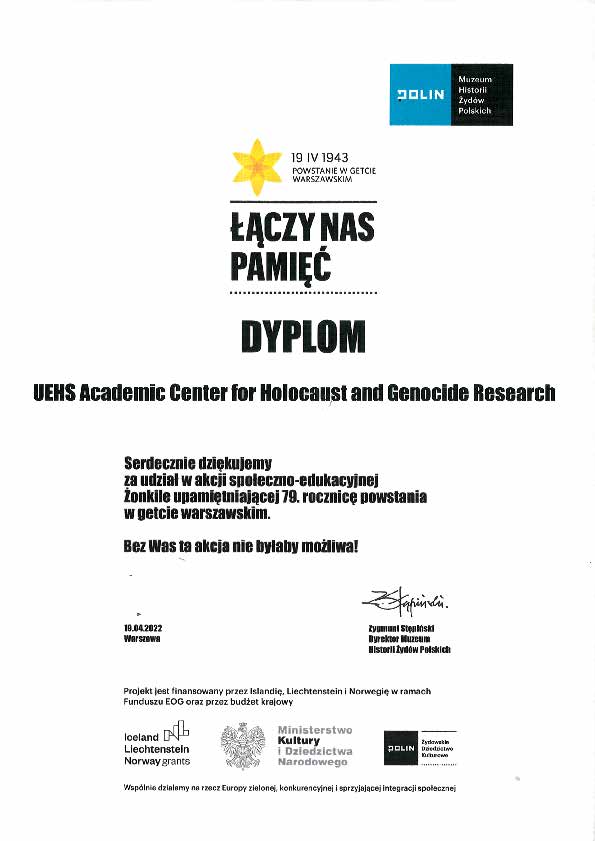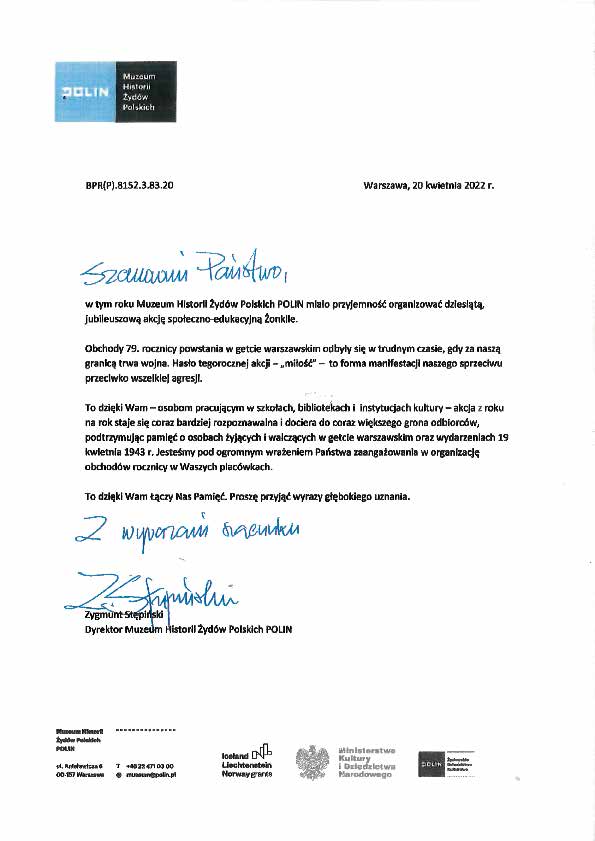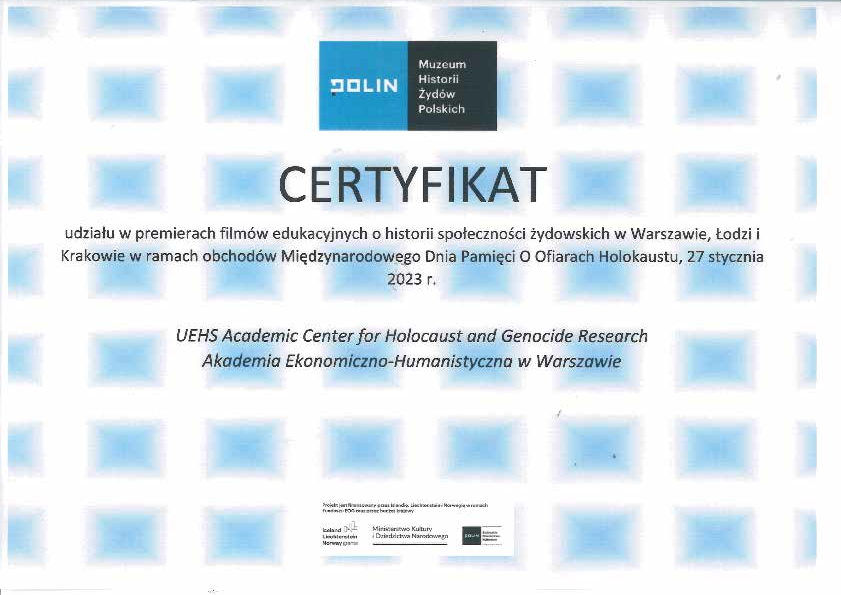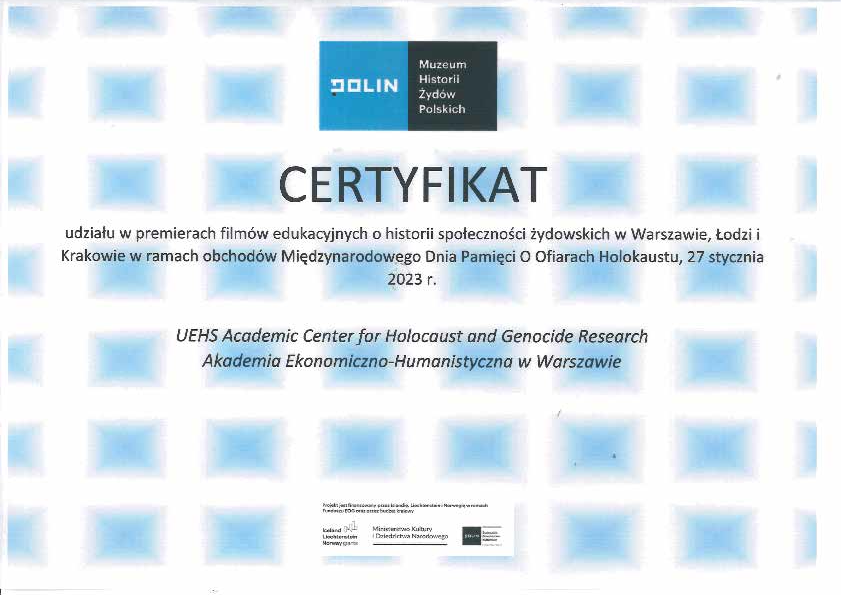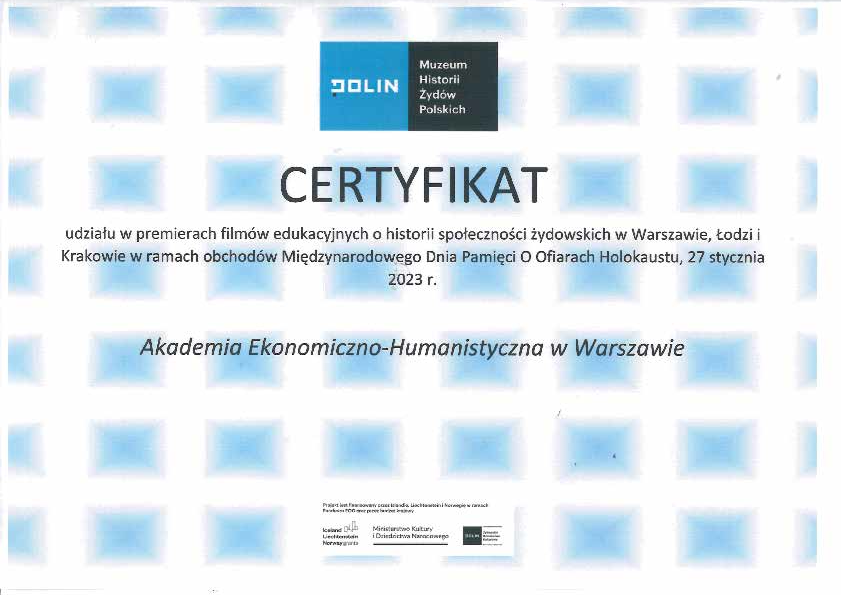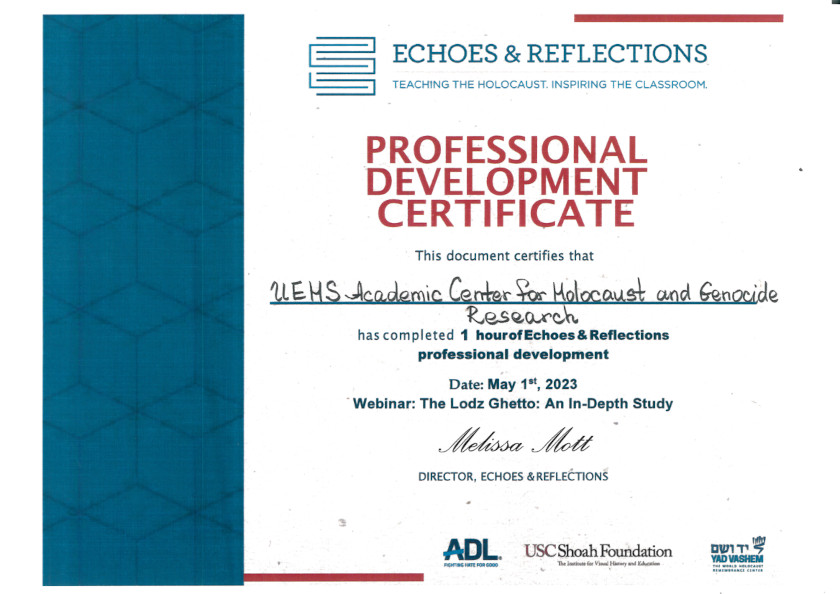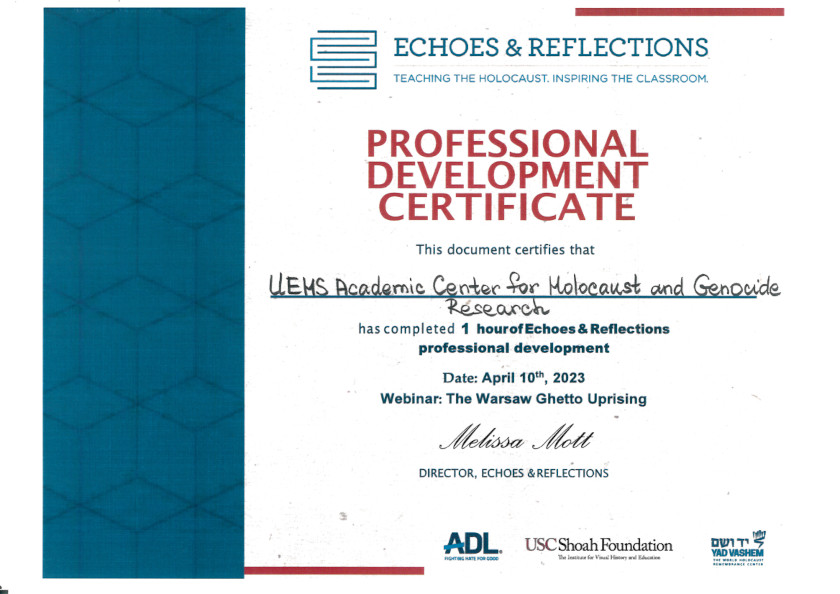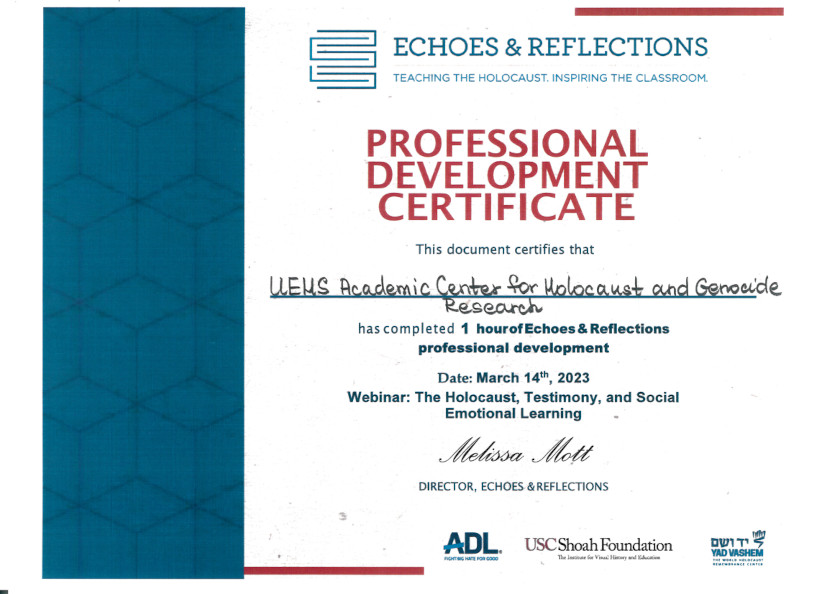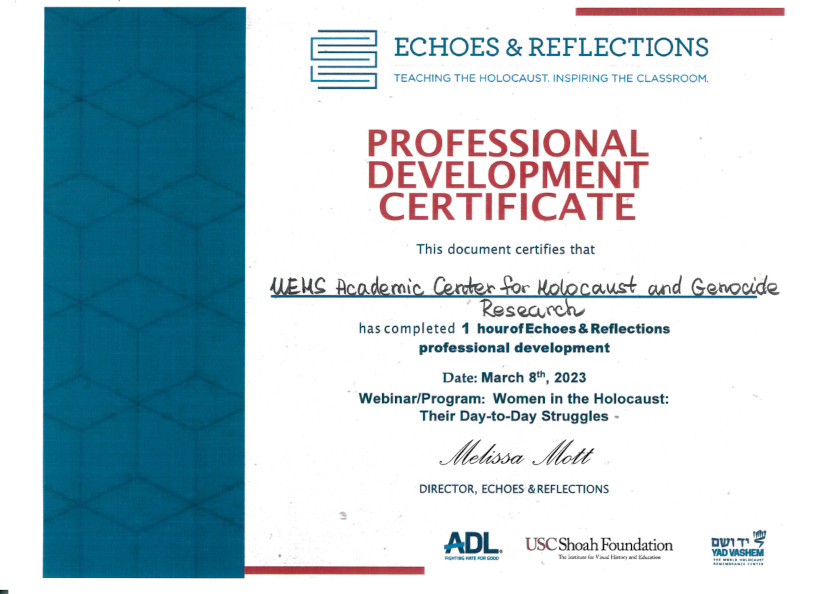Research Centres
VIZJA University Academic Center for Holocaust and Genocide Research
Director Board & Heads of the Research Units
- Director: dr Bożena Iwanowska
- Deputy Director: dr habilit. VIZJA University prof. Anna Wierzchowska
- Deputy Director: dr Żaneta Gwardzińska – Chowaniec
- Head of the Polish-Jewish Culture and History Unit, Legal Issues Advisor: dr Tomasz Wierzchowski
- R.A.C.H.E.L Database Developer, Digital Projects Expert, Head of the International Projects & Grant Programs Unit: dr Yan Kapranov
- Expert in Protection of Children’s Rights during Armed Conflicts: dr Dawid Stadniczeńko
- Head of the Fashion Trends and Jewish Religious Clothing Unit: dr Magdalena Płonka
- Experts in Human Rights, the European Convention on Human Rights and Fundamental Freedoms (ECHR): Legal Advisors and Attorneys at Law Dr. Agnieszka Łukaszczuk-Walter and Dr. Przemysław Wasylik
- Nazi Propaganda Linguistic and Legal Analysis Expert: dr Bolesław Cieślik
- Holocaust Literature Team Coordinator: dr Peter Lawson
- Data Analysis Expert: dr Krzysztof Krassowski
Research Teams
- Holocaust Research Team Coordinators (Poland/USA): Sara Aloe, Klaudia Szymonik, Agnieszka Skrzypaszek
- Ukraine Research Team Coordinators: Sofiia Mykytash, Mariia Gaichenia, Valeriia Trufanova, Vladyslav Sapuzhak
- Belarus Research Team Coordinators: Mikita Fiodarau, Darya Shauchenka, Yanina Kulahina
- Rwanda Research Team Coordinators: Blaise Musekera, Aimee Igihozo, Hirwa Umubera, Allan Rutayisire, Joseph Uwagaba
- Congo Research Team Coordinator: Franssen Kiensha
- Zimbabwe Research Team Coordinators: Ruvarashe Matambanadzo
- Mongolia Research Team Coordinators: Munkhjargal Erdenebat, Gan-Erdene Lkhamdulam, Ulamsaikhan Altnaa, Namuunzaya Altangerel, Khuselbayar Togtokhbayar, Mungunzul Tugsbat
- Pamir Research Team Coordinators: Debora Muzofirshoeva, Maqsudshoh Akbarsho, Iskandarkhon Samadov, Nasim Shosafedov, Aliyor Qiyobekov, Nadezhda Anoyatshoeva
- Uzbekistan Research Team Coordinators: Boburbek Muhammadjonov
- Azerbaijan Research Team Coordinators: Ali Ibrahimli, Arzu Garayeva, Jamila Hasanova, Elvin Mammadov, Elmir Mammadov
- UK Research Team Coordinator: Ruqayya Wilson
- Turkey Research Team Coordinators: Mert Yalnis, Ali Cansin Coban
The VIZJA University Academic Center for Holocaust and Genocide Research was founded in 2020 as a Science Society for students of the VIZJA University. It gained Academic Research status in 2022 and continues to operate within the university.
The Center’s main goals and responsibilities involve promoting collaboration among its members through the sharing of information about significant events and conferences. This fosters a supportive and unified team environment where members encourage one another.
In this academic setting, each member has the chance to present and enhance their ideas and knowledge. The Center strongly supports skill and expertise development, providing opportunities for conference participation, presentations, and the writing of articles and abstracts, as well as the co-organization of events hosted by the Center. Through voluntary engagement, members acquire essential experience in academic work.
Aims:
- Students participating in the VIZJA University Academic Center for Holocaust and Genocide Research hail from a wide array of academic disciplines, such as political science, international relations, linguistics, media studies, information technology, psychology, law, security and cybersecurity, as well as management.
- Contributing significantly to the advancement of academic research in the fields of Holocaust and Genocide studies.
- Promoting and facilitating educational outreach activities, raising awareness about the historical significance and contemporary implications of Holocaust and Genocide events.
- Disseminating research findings through publications, conferences, and other platforms, ensuring that insights reach a broad academic and public audience.
- Fostering interdisciplinary collaboration, encouraging scholars and students from diverse backgrounds to engage in comprehensive and multifaceted research approaches.
- Participating in the preservation of historical memory by documenting and analyzing Holocaust and Genocide-related materials, artifacts, and testimonies.
- Engaging in ethical inquiry and critical analysis, exploring the moral dimensions surrounding Holocaust and Genocide events, and contributing to broader discussions on ethics in historical research.
- Providing a conducive environment for students to develop their academic and research skills, offering opportunities for hands-on experience, conference participation, and collaborative projects.
- Facilitating international dialogue and collaboration, promoting a global perspective on Holocaust and Genocide studies and encouraging cross-cultural exchanges among researchers and students.
- Engaging with the community through outreach programs, educational initiatives, and partnerships, fostering a sense of responsibility and understanding regarding historical atrocities.
- Adopting a holistic approach in examining Holocaust and Genocide phenomena, encompassing not only historical and political dimensions but also socio-cultural, legal, and linguistic aspects for a comprehensive understanding of these events.
The center extends a warm welcome to students eager to enhance their academic proficiency in Holocaust and Genocide research. This is achieved through active involvement in diverse research projects and the presentation of research findings at conferences.
Ways the Center performs its functions:
- Engage students in hands-on research projects related to Holocaust and Genocide studies, providing them with practical experience in data collection, analysis, and interpretation.
- Facilitate students’ participation in academic conferences, where they can present their research findings, engage in scholarly discussions, and network with experts in the field.
- Conduct workshops and seminars on relevant topics, inviting guest speakers and experts to share their insights and expertise with students.
- Encourage and guide students in writing articles and abstracts for publication, fostering their skills in academic writing and contributing to the dissemination of research.
- Form collaborative research teams where students can work together on interdisciplinary projects, promoting teamwork and a holistic approach to understanding Holocaust and Genocide.
- Provide opportunities for students to conduct archival research, allowing them to explore primary sources and gain a deeper understanding of historical events.
- Facilitate internships and voluntary opportunities within the center, enabling students to gain practical experience and contribute to ongoing research initiatives.
- Organize lectures by experts in Holocaust and Genocide studies, exposing students to diverse perspectives and insights from established scholars in the field.
- Offer specialized courses or sessions focusing on linguistic and legal analysis of Nazi propaganda, providing students with a unique skill set for understanding the communicative aspects of historical events.
- Engage students in community outreach programs that involve educational initiatives, workshops, and events aimed at raising awareness about the importance of Holocaust and Genocide studies beyond academic circles.
VIZJA University Academic Center for Holocaust and Genocide Research supervises and collaborates with the VIZJA University Academic Work and Research Center for Political Thought and Leadership.
- Chief Coordinator: Thulani Mashava
- Model of United Nations Team Coordinator: Fatima Swaleh, Ruvarashe Matambanadzo
Aims:
- Students participating in the VIZJA University Academic Work and Research Center for Political Thought and Leadership hail from a wide array of academic disciplines, such as political science, international relations, linguistics, media studies, information technology, psychology, law, security and cybersecurity, as well as management.
- Members of the center embrace an interdisciplinary approach, recognizing the multifaceted nature of political thought and leadership, and actively engage in cross-disciplinary research projects.
- The center prioritizes leadership development, offering students opportunities to explore and analyze various political ideologies and leadership styles through research, seminars, and practical initiatives.
- Students collaborate on projects that explore the intersectionality of political thought and leadership, fostering teamwork and a comprehensive understanding of the political landscape.
- Members are involved in policy analysis, critically examining political decisions and their implications on both national and international levels.
- The center encourages students to present their political thought and leadership research at conferences, providing a platform for scholarly exchange and networking.
- Students actively engage in public discourse, contributing to discussions on contemporary political issues and demonstrating a commitment to civic responsibility.
- Ethical considerations in political decision-making are emphasized, and students explore the moral dimensions of leadership, guiding them in responsible and principled political engagement.
- The center’s members participate in community impact initiatives, applying their political thought and leadership knowledge to address local and global challenges.
- Students benefit from mentorship opportunities provided by experienced faculty members and external experts, facilitating their academic and professional growth in the realm of political thought and leadership.
For those seeking additional information or with inquiries, please feel free to contact us at:
E-mail: b.iwanowska@vizja.pl / genocideresearch@vizja.pl
Facebook: https://www.facebook.com/GenocideResearchCenter
Instagram: https://www.instagram.com/uehs_holocaust_genocide_arc/




